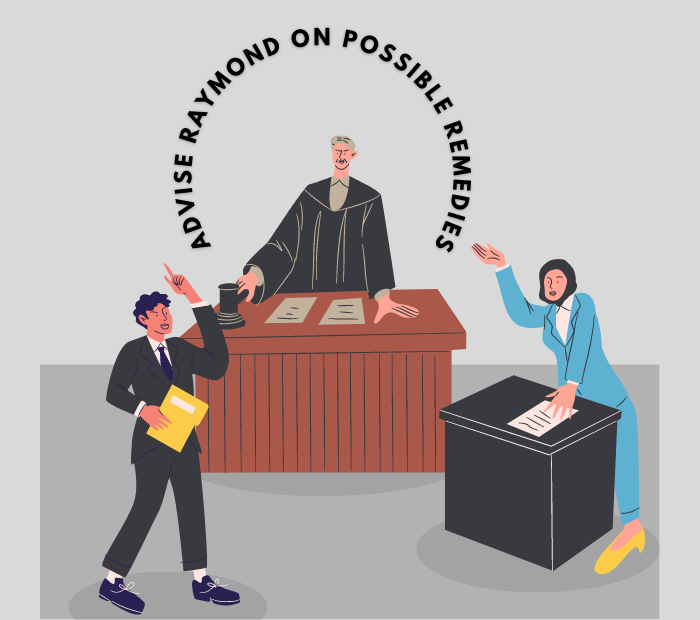Advise Raymond on possible remedies is the partly answer of the case study regarding a business law practice taken from a course like Business Law and Ethics.
Question
Breach of Contractual Relationships and Remedies
Raymond works on a part-time basis for a firm of accountants in its taxation department, but he also runs a small consultancy business, of which he is the sole proprietor, specialising in personal taxation advice. He entered into a contract with Samantha, a struggling artist, under which he agreed to prepare some draft business accounts for her,covering the last three years, for the sum of £800. Raymond completed the work, but Samantha told him she could only afford to pay £200 for the work. After a bitter argument Raymond reluctantly accepted a cheque for £200 from Samantha, which was stated to be in full and final settlement of the debt.
Shortly afterwards Samantha’s paintings began to realise very high prices and Raymond has just read in a newspaper that her latest work has been sold for £20,000. He now wishes to claim the balance of £600 from Samantha and approaches you for advice.
Required:
- Advise Raymond on possible remedies available to him.
Read More: Different Sources of Business Law
Answer:
A lot of remedies can be suggested for breaching a contract which can be of either equitable or common law type (T. Ostas, 2017). Four types of common law remedies are found:
Liquidated damages: The amount is predetermined by the parties while making a contract.
Unliquidated damages: The court determines the damages based on the breach.
Restitution of payments made in advance of a contract: If there is a defect in contract or found fault in law, restitution can be made.
Quantum Meruit: The actual amount that is to be paid for a work or service performed already (Kubasek, 2020).
Analyzing this case, Raymond and Samantha had a contract. In which, Raymond would prepare draft business for Samantha with the charge of £800. He took three years to complete the draft. According to the contract, he acted upon which he was stated. Therefore, the other party, Samantha, has to perform her part as well (Kubasek, 2020). But, Samantha breaches the contract by providing £200 instead of £800. Now, Raymond can submit a complaint in a civil court for remaining money (Halbert and Ingulli, 2016). However, this is a case of liquidated damage as the money is predetermined during the time of contract generated. The concept has emerged after a case Dunlop Pneumatic Tyre Co v New Garage and Motor Co.
References
Halbert, T. and Ingulli, E., 2016. Law & Ethics In The Business Environment. 4th ed. London: Media Press.
Kubasek, N., 2020. Dynamic Business Law. Columbus: McGraw-Hill US Higher Ed USE
Ostas, D., 2017. The Law and Ethics of K Street: Lobbying, the First Amendment, and the Duty to Create Just Laws. Business Ethics Quarterly, 17(1), pp.33-63.
Written by
Email: [email protected]

